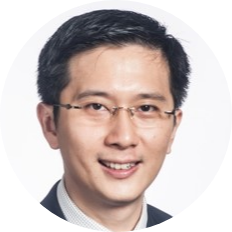The global pandemic has been one of the most disruptive events in modern time. Every country, economy and society has been affected in one way or another. However, global challenges present new opportunities for new innovations, especially in an environment that has seen the most increased digitalisation efforts than at any other time in history.
The webinar will highlight how the pandemic has changed the way we live and work, and how high performance computing (HPC) enabled research, technologies and innovations could help re-shape industries, strategies and society in the new normal.
Topics:
Live Data and Precision Medicine in the Post-Pandemic World
by A/Prof Ngiam Kee Yuan, Group Chief Technology Officer, National University Health System
In the post pandemic world, governments and researchers know the value to innovation at speed to solve rapidly emerging problems. The need to gather and make sense of data to deliver real world benefits has become more important than ever. To truly realise benefits from this data, we need to adopt modern computing architectures and live-stream data. This would transform data at rest to data in motion, fundamentally changing the way we apply insights from data to actionable outcomes. We would explore how flowing data, coupled with AI, would enable precision medicine in the post pandemic world.
Real-time Surveillance of Pathogen Evolution and Global Transmission
by Dr Sebastian Maurer-Stroh, Executive Director (Designate), Bioinformatics Institute (BII), A*STAR, Singapore
A previously unknown betacoronavirus (hCoV-19) was detected in patients during an outbreak in late 2019. GISAID, a platform known for its unique sharing mechanism for influenza genomes took on the call by WHO Member States to host the genomes of the newly discovered virus starting with 5 genomes from 3 Chinese labs in early January to now over 213,000 genomes with 26,000 participating researchers from 198 nations. The unprecedented speed of sharing via the platform enables real-time progress in the understanding of the outbreak dynamics and in the research and development of candidate medical interventions and policy measures.
This webinar will cover how genomic data yields several crucial results for targeted response:
- Development of first diagnostics kits and refinement through ongoing surveillance for mutations;
- Identification of potential drugs through repurposing and vaccine targets;
- Identification of animal precursors of hCoV-19 (in bats and pangolins);
- Genomic epidemiology of hCoV-19, which allows analysis of the exportation and importation events of viruses between countries, contact-tracing in countries, or identification of transmission chains;
- Evidence that the virus has evolved into clades but not drifted to significant strain difference, with in particular the cell receptor binding pocket being watched closely.
10:00am – 10:05am: Introduction by NSCC
10:05am – 10:25am: Presentation on Live Data and Precision Medicine in the Post-Pandemic World by A/Prof Ngiam Kee Yuan
10:25am – 10:45am: Presentation on Real-time Surveillance of Pathogen Evolution and Global Transmission by Dr Sebastian Maurer-Stroh
10:45am – 11:05am: Live Q&A and moderated panel discussion
11:05am – 11:10am: Closing by NSCC

A/Prof Ngiam Kee Yuan is the Group Chief Technology Officer at the National University Health System (NUHS) Singapore overseeing technology deployment in the Western Healthcare Cluster of Singapore. In his role he assists the Chief Executive to implement new technologies throughout NUHS and serves as the Chief Advisor to the Centre for Innovation in Healthcare in NUHS.
A/Prof Ngiam is concurrently the Deputy Chief Medical Information Officer at the NUHS with a special focus on Artificial Intelligence research and information technology implementation in healthcare.
In his capacity as Associate Professor, Department of Surgery, Yong Loo Lin School of Medicine NUS, A/Prof Ngiam engages in research into endocrine and metabolic surgery as well as artificial intelligence applications in healthcare.
A/Prof Ngiam promotes interdisciplinary collaboration throughout the National University of Singapore campus, particularly between the schools of medicine, engineering and computer science for various healthcare applications. He was awarded the ExxonMobil-NUS Research Fellowship for Clinicians in 2007 and numerous teaching awards for his work in research and education.

Dr Sebastian Maurer-Stroh is an expert in computational sequence and structure analysis in the A*STAR Bioinformatics Institute (BII) since 2007 and taking over as Executive Director in January 2021. He is critically contributing to national and global viral pathogen surveillance, most notably with tools like FluSurver and CoVsurver to interpret viral mutations and has been working closely with the global GISAID team to enable sharing and real-time analysis of the pandemic coronavirus causing COVID-19.
Presentation Slides
Dr Sebastian Maurer-Stroh: Real-time Surveillance of Pathogen Evolution and Global Transmission
The recording of the webinar is available on NSCC’s YouTube page here.


